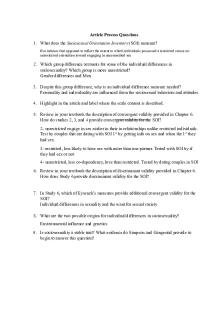Michael Simpson PDF

| Title | Michael Simpson |
|---|---|
| Course | Organizational Behaviour |
| Institution | Ryerson University |
| Pages | 3 |
| File Size | 85.2 KB |
| File Type | |
| Total Downloads | 70 |
| Total Views | 209 |
Summary
Case study...
Description
Questions 1. Use discrepancy theory concepts to explain Michael Simpson’s feelings. a. Discrepancy theory refers to the discrepancy between the outcome a person wants from their job and the outcome they perceive that they get. In this situation, Michael wants a substantial raise but in his mind he is not satisfied with the amount, because it is lower than some of his less experienced coworkers. In this case, there is a large gap between what he wants and what he thinks he’s getting. *Michael is currently being paid less than his less experienced coworkers which drives the discrepancy between what Michael is currently getting paid, and what Michael believes he should be paid given he has more experience. Michael is dissatisfied because there is a gap between what he IS being paid, and what he believes he deserves based on the pay that his less experienced coworkers are receiving. 2. Use equity theory to explain Michael’s feelings. Provide details about inputs, outcomes, and likely comparison people. a. Using equity theory, a person can compare their inputs (for example…) towards a job and their outcomes the job provides with the inputs and outcomes of another similar person/worker. Michael feels that he is a good worker and experienced and this resulted in a pay raise, which happened to be much lower than some of his other coworkers. For example, Michael’s coworkers, Walt and Rich, had been hired in the past year (input: less experience) and were getting paid $12 000 more than Michael. Michael perceives this situation as inequitable and believes he deserves more compensation than his inexperienced coworkers. 3. Comment on Mike’s likely perceptions about procedural fairness at Avery McNeil and Co. a. Procedural fairness is when a person sees the process to determine outcomes as fair and reasonable. Procedural fairness is more concerned with how the outcomes came to be, and not the outcome itself. Michael likely perceives the procedural fairness at Avery McNeil as unjust. He sees that the company is paying less experienced and less qualified employees more than him. This is being done in order to attract new employees, and Michael perceives this as unfair because they are being paid more for the wrong reasons, at least according to him. 4. Apply affective events theory to the case. How did the memo affect the mood in the office? What emotions are at play? a. Affective events theory refers to a certain quality of the workplace. It notes that jobs have a series of events that can potentially bring out emotions or influence
the mood of the workplace. In Michael’s situation, after Dave showed him the memo with everyone’s salaries, Michael felt very upset and cheated, and so did Dave. This affected the mood in the office because now there is some resentment from Michael and Dave towards some of the less qualified and inexperienced employees who are getting paid more than Michael and Dave.
5. Use Exhibit 4.8 to analyze the factors that might determine if Mike quits his job at Avery McNeil. a. There are certain factors that can determine if Michael will quit his job with the company. These include job satisfaction, organizational commitment, shock, community ties and job market. Michael used to have lots of job satisfaction, but after the discovery that he is getting paid less than certain other coworkers, his satisfaction went down by a lot. Michael’s organizational commitment might be lower as well because he feels that the company doesn’t value him enough to pay him more. He also feels shocked about the pay situation among his other less experienced and less qualified employees. However, he does feel that he has good community ties and has relationships with his coworkers. Regarding the job market, Michael thinks it is good because evidently it is very competitive and he thinks he can get a better deal working somewhere else. To sum up, due to these factors, it is likely that he will quit his job. 6. Speculate on the likely consequences of Mike’s dissatisfaction if he does not quit the firm. a. Michael might feel that his company is not treating him fairly. As a result, he might not put in so much effort into his work. He might also treat the other employees who are getting paid more than him badly out of jealousy. This can create a work environment with lots of tension which can lower the job satisfaction of everyone in the company. 7. Comment on how Mike’s organizational commitment may be changing. a. Previously, Michael had a good organizational commitment. He was grateful to the company for allowing him to move up the ranks so quickly and he also felt valued and needed as there were some jobs that only he could do. Now, Michael’s organizational commitment is being lowered because he feels like he is not being appreciated enough after learning the salaries of some other coworkers. As a result, he feels less committed to the company because he feels that they value him less. (Commitment goes both ways) 8. What should Mike do now? a. In my opinion, I think that it is best if Michael stayed with the company for another short while. The company has given Michael lots of opportunities for growth, and with growth comes a higher salary. If Michael has faith in himself and in his company, he will do everything to make that happen. Whereas, in a different
company, he is not guaranteed to move up as quickly or even enjoy his job, which he is now at Avery McNeil. If Michael continues to be dissatisfied, even some time after this incident, then I think he should reconsider his option to leave....
Similar Free PDFs

Michael Simpson
- 3 Pages
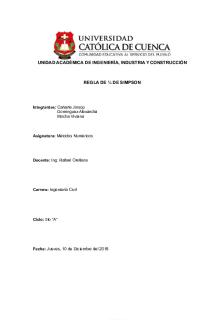
Metodo de simpson - Nota: 9
- 5 Pages

4.2.2. Metodo del Simpson
- 7 Pages

Taller Caso O.J Simpson
- 3 Pages
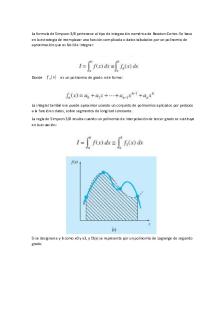
Desarrollo Simpson 3/8
- 3 Pages

CASO O. j. simpson
- 2 Pages

Michael Thonet
- 2 Pages
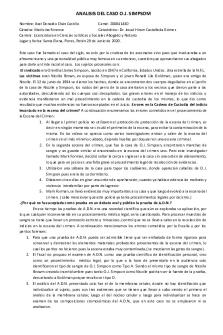
Analisis DEL CASO O. J. Simpson
- 1 Pages

Michael armstrong-performance management
- 215 Pages
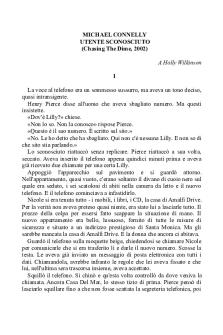
Michael Connelly - Utente Sconosciuto
- 247 Pages

Michael Apple Ensayo Completo
- 20 Pages
Popular Institutions
- Tinajero National High School - Annex
- Politeknik Caltex Riau
- Yokohama City University
- SGT University
- University of Al-Qadisiyah
- Divine Word College of Vigan
- Techniek College Rotterdam
- Universidade de Santiago
- Universiti Teknologi MARA Cawangan Johor Kampus Pasir Gudang
- Poltekkes Kemenkes Yogyakarta
- Baguio City National High School
- Colegio san marcos
- preparatoria uno
- Centro de Bachillerato Tecnológico Industrial y de Servicios No. 107
- Dalian Maritime University
- Quang Trung Secondary School
- Colegio Tecnológico en Informática
- Corporación Regional de Educación Superior
- Grupo CEDVA
- Dar Al Uloom University
- Centro de Estudios Preuniversitarios de la Universidad Nacional de Ingeniería
- 上智大学
- Aakash International School, Nuna Majara
- San Felipe Neri Catholic School
- Kang Chiao International School - New Taipei City
- Misamis Occidental National High School
- Institución Educativa Escuela Normal Juan Ladrilleros
- Kolehiyo ng Pantukan
- Batanes State College
- Instituto Continental
- Sekolah Menengah Kejuruan Kesehatan Kaltara (Tarakan)
- Colegio de La Inmaculada Concepcion - Cebu

